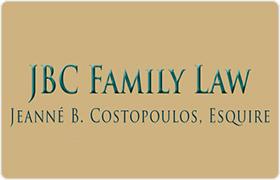Plainfield Divorce & Family Law Lawyer, Pennsylvania
Sponsored Law Firm
-
 x
x

Click For More Info:
-
Law Office of Jeanné B. Costopoulos
1104 Fernwood Avenue Suite 104 Camp Hill, PA 17011» view mapDivorce & Family Law Experienced & Aggressive Representation
Attorney Costopoulos' practice is focused exclusively on family law and is known by her clients as patient, confident, always responsive and aggressive when needed.
800-497-8501
Daniel Pollock
✓ VERIFIEDFamily Law, Criminal, Custody & Visitation, Divorce & Family Law
Daniel Pollock is a practicing lawyer in the state of Pennsylvania.
FREE CONSULTATION
CONTACTMichelle Lee Sommer
Family Law, Child Custody, Divorce & Family Law
Status: In Good Standing Licensed: 20 Years
Bradley Leroy Griffie
Real Estate, Estate, Adoption, Divorce & Family Law, Elder Law
Status: In Good Standing Licensed: 43 Years
 Jeanné Costopoulos Camp Hill, PA
Jeanné Costopoulos Camp Hill, PA Practice AreasExpertise
Practice AreasExpertise

